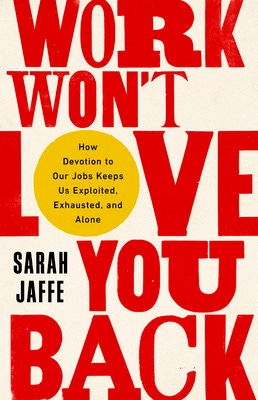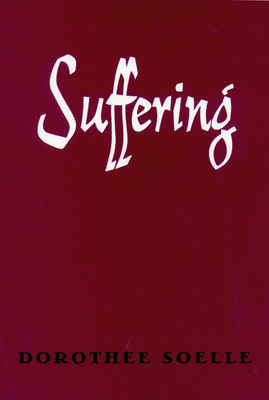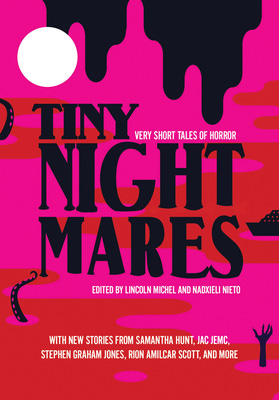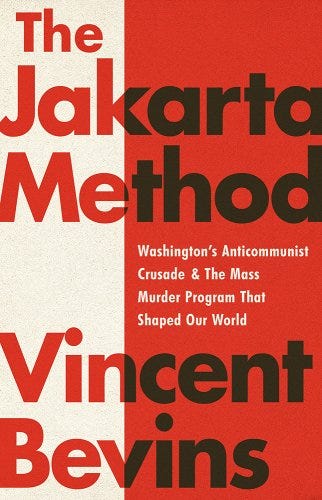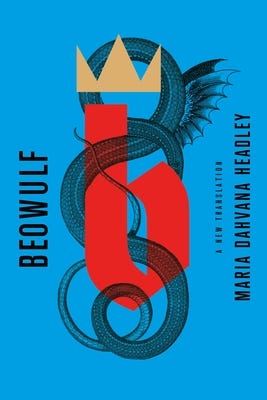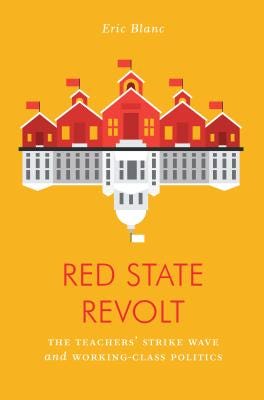The 2021 Weirdly Specific Holiday Book Guide
Niche books for people in your life with a certain sensibility
Everyone deserves a Cool Aunt in their life to pass on forbidden knowledge and esoteric taste. Why not be that aunt (literal or figurative) this gift-giving season?
All of the following books are available to order via Bookshop, an online bookseller that’s slightly more ethical than Amazon. If you buy via an affiliate link in this newsletter, I also get a small cut of the proceeds. You can also find all of these books on the Brutal South Bookshop page.
Happy shopping.
For the Millennial or Zoomer in Your Life Who Senses that Neoliberalism is a Dead End and Things Are Not Going to Get Better Unless and Until We Topple the Whole Apple Cart, So to Speak
Oval by Elvia Wilk (Soft Skull, 2019, 352 pages)
So there are these pills being passed around in Berlin nightclubs that cause people to get high off of altruism. People pop one and then give all their money to homeless people, and suddenly they are in ecstasy.
In the novel Oval, the pill-that-makes-you-nice is proposed as a solution to economic inequality. The idea is preposterous and obviously flawed, but only slightly more so than present-day plans to fix the wreckage of capitalism through private philanthropy and household recycling.
Like a lot of great speculative fiction, Oval is brimming with technological satires. It’s arch and funny and I think about it often.
For the Stressed Out, Burned Out, Bummed Out True Believer Who Did What They Loved and Has Nothing to Show For It
Work Won’t Love You Back by Sarah Jaffe (Bold Type, 2021, 432 pages)
(As featured in the Aug. 4, 2021, issue, “Hope and labor.”)
In 2019 I lost a job that I was passionate about. At a certain point in my life, I might have even called it my “dream job,” before the depression set in. But within a week of unemployment, I felt like I was waking up from a delusion.
Had I ever really loved my work? Certainly my employers had never loved me back. Why had I staked so much of my identity on the part of my life that made me miserable?
The title of Work Won’t Love You Back sounds a little like self-help, and it sort of is. Through worker interviews and historical materialist analysis, Jaffe turns a mirror on people like me. Even in chapters on career fields as disparate as professional sports and nonprofit work, I saw glimpses of my own self-delusion — and always a hope for radical change in the way we work and organize.
For the Writer in Your Life Who Reads Fiction to Learn How to Write Fiction Better
Dinner by César Aira, translated by Katherine Silver (New Directions, 2015, 96 pages)
César Aira is an Argentinian novelist who has written “at least one hundred books,” according to his author blurb. His signature writing technique is something he calls la fuga hacia adelante, or “fleeing forward.” If he writes himself into a corner, he has to write himself out of it, because he’s not going back to revise. Lincoln Michel described the technique this way:
For writers who maybe aren’t as keen on the “vomit first, revise later” technique, you might want to try César Aira’s process. It’s the 180° opposite method: “write carefully and never revise.”
In the Aira books I’ve read so far, the result of that technique is usually something akin to either magical realism or the dream-logic of surrealism. The latter is particularly true in this novella, which I won’t describe beyond saying it’s kind of a zombie story.
For the Deconstructed, Reconstructed, Lapsed Exvangelical Who Nonetheless Believes that God is Real and is Not a Fan of the Church America Built
Suffering by Dorothee Sölle (Fortress Press, 1973, 188 pages)
(As featured in the Jan. 21, 2021, issue, “A field guide to Christofascism.”)
You probably won’t hear much about it unless you participate in certain very-online segments of U.S. Christendom, but there’s a whole discourse raging right now about the merits and pitfalls of “deconstruction.” The term refers broadly to the process by which people re-examine and re-assemble their beliefs about God, the Bible, and the world. We love to coin a buzzword.
I’m pretty much always in a state of “deconstruction,” if I have to put a label on it, and liberation theologians have helped me to understand and follow Jesus lately. James Cone, Gustavo Gutiérrez, and a lot of radical 20th-century Jesuits from South and Central America laid a good foundation for understanding God in the context of late capitalism and U.S. empire.
Sölle, a German, is not one of the better-known liberation theologians, but this year I’ve really appreciated a thin volume of hers called Suffering. She was writing to and about Christians in the United States during the Vietnam War, but the core of her message still applies:
I am writing this book in the months during which the war in Vietnam is ending. I am writing out of the bitterness of those who, in the midst of new American bombing and demonstrations against it, ask themselves, “Why isn’t our outcry doing any good? What’s the use of protesting? Have we been screaming too softly? … Why couldn’t we show Christians who go to church every Sunday where it is that the crucifixion is happening today?”
For the Lover of Lovecraftian Horror Who Cringes at Lovecraft’s Obnoxious Legacy of Sad-Boy Racism
Tiny Nightmares edited by Lincoln Michel & Nadxieli Nieto (Catapult, 2020, 304 pages)
I’ve had this collection of very short horror stories on my bedside table all year. You can pick it up and read a story in 5 minutes, then fall sound asleep and have the strangest dreams.
I bought it partly because I enjoy anything Lincoln Michel does (his new novel The Body Scout is also excellent), but also admittedly because I loved the gimmicky index in the back of the book, which includes entries like this one:
brain 10
-like carnivorous plant stamen 53
dancing - to - 95
hungry for -s 167
For That Special Someone Who Is Inclined to Believe Certain Conspiracy Theories Are Real
The Jakarta Method by Vincent Bevins (Public Affairs, 2020, 352 pages)
(As featured in the Sept. 9, 2020, issue, “When they call you a communist.”)
I forget who said it first, but an easy way for history teachers to radicalize students would be to just hand them declassified CIA documents. Or you could buy them this book.
Bevins’ thesis is that when the U.S. government instigated the mass murder of a million Indonesian civilians in 1965, it set the template for anticommunist operations across the developing world. The kill lists, the death squads, the propaganda campaigns, the subversion of democracy, and the constant hum of paranoia — these all had their roots in Jakarta under U.S.-backed General Suharto.
For the Irreverent Appreciator of the Classics
Beowulf translated by Maria Dahvana Headley (MCD x FSG Originals, 2020, 176 pages)
“Hwæt / So. / Bro!” That’s the first word of the epic poem Beowulf in, respectively, the original Old English, the 1999 Seamus Heaney translation, and the 2020 translation by Maria Dahvana Headley.
The cocksure “bro!” sets the tone for the chest-thumping braggadocio and juicy violence in Headley’s new translation. Here’s the rest of the first stanza, to give you the flavor of it:
Bro! Tell me we still know how to speak of kings! In the old days,
everyone knew what men were: brave, bold, glory-bound. Only
stories now, but I’ll sound the Spear-Danes’ song, hoarded for hungry times.
I still enjoy Heaney’s 1999 translation for how it captures the abrupt phonetic feeling of Old English, but this new translation takes the prize for sheer visceral fun. This is not the Beowulf you read in high school.
For the Teacher or Ex-Teacher Who is About to Snap or Perhaps Has Already Snapped
Red State Revolt by Eric Blanc (Verso, 2019, 224 pages)
(As featured in the Jan. 8, 2020, issue, “How teachers can win.”)
What a hellish couple of years it’s been for teachers. On top of the usual struggles — the low pay, long hours, and impossible expectations — they’ve had to run classrooms through virtual changeups, through plexiglass shields, and through a series of contrived culture wars ginned up by people who don’t think education should be a public good at all.
There’s a lot of talk about self-care these days, and that can only be a good thing for our conception of work. Another important antidote is getting organized, and that’s what this book is about. Written in the immediate aftermath of teacher uprisings in West Virginia, Oklahoma, and Arizona, it shares some inspiring examples and cautionary tales, comparing and contrasting how the teacher movements in those states took hold and grabbed the public’s attention. There’s hard-won wisdom in these pages.
For the Aspiring Architwitter Influencer Who Talks About “Brutalism” and “Le Corbusier” and Would Like to Think About Buildings on a Deeper Level
Modern Architecture: A Critical History by Kenneth Frampton (Thames & Hudson, 1980, 736 pages)
Like a lot of dilettantish modern architecture fans, I got into modern architecture by ogling pictures online. I go on Instagram or into niche Facebook groups and I gawk at pictures of angular, daring brutalist churches and revolutionary social-housing units that now go for millions of dollars.
Looking to go deeper than a surface understanding, I picked up a third edition of Kenneth Frampton’s seminal overview of modernist architecture. It’s long and technical and sometimes a little dry, but it’s essential reading for anyone who wants to understand the philosophical and technical underpinnings of some iconic 20th-century buildings.
***
Bandcamp // Apple Podcasts // Spotify Podcasts // Twitter // Bookshop




